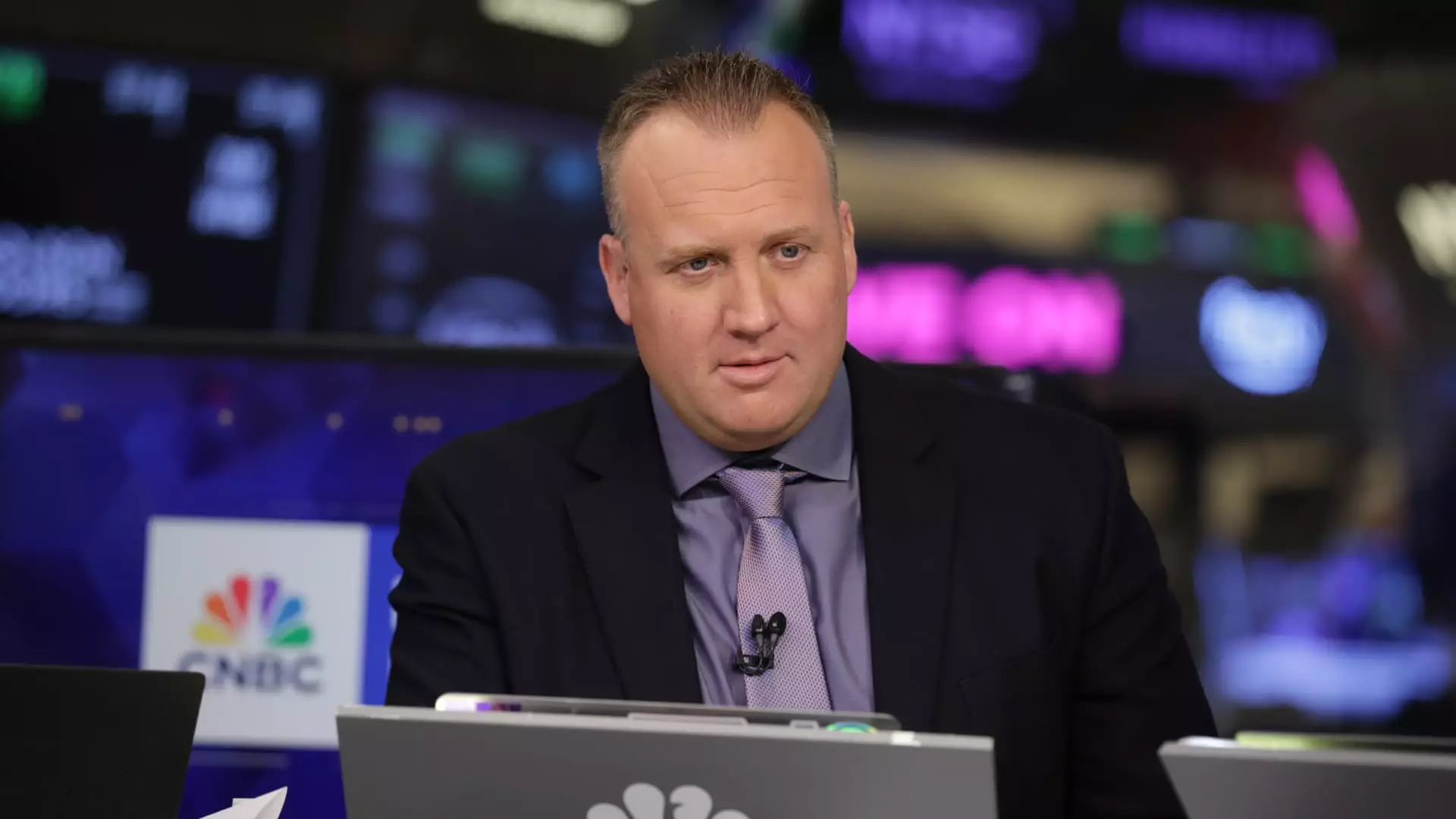The recent online spat between Elon Musk and former President Donald Trump may have sporadically caught headlines, but for the savvy investor, it’s simply another mundane episode in the melodrama of social media. For those closely observing the trajectory of Tesla, such distractions seem trivial against the backdrop of a shaken stock performance. On a day that saw Tesla’s shares plummet over 14%, sharp analyst insights like those from Josh Brown of Ritholtz Wealth Management deliver an astute reminder: Twitter feuds don’t move the market; tangible performance does.
Musk’s historical allegiance to Trump, once a point of pride, now appears more like a relic of the past, overshadowed by critical concerns about Tesla’s evolving market share. The electric vehicle landscape is intensifying with competition, and while the charismatic CEO trades barbs online, the company must contend with real threats such as traditional automakers upping their EV game and startups vying for consumer attention. In this context, tireless loyalty from investors could be seen as naive wishful thinking, blinding them to the pressing challenges ahead.
The Misguided Faith in Tesla’s Dream of Robotaxis
One of the more curious aspects of modern investor behavior is the blind faith placed in the prospective future of Tesla as a robotics and automation leader. Brown candidly notes that many stakeholders view Tesla not primarily as a car manufacturer but as a “robotaxi” enterprise poised to revolutionize the transportation industry. However, this ambitious projection seems to exist in a separate realm from the company’s current reality. With market share erosion against growing competition, the tactical pivot to the slogan of “robotaxi” feels less like progressive thinking and more like a defense mechanism for investors unwilling to confront the company’s faltering automotive sales.
The possibility of an autonomous vehicle fleet squeezing into the market may indeed be a trillion-dollar idea, but that dream also carries immense risks and uncertainties, particularly as Tesla navigates regulatory and technological hurdles. It’s high time stakeholders evaluate whether their unwavering belief is an effort to escape the harsh realities of the current landscape or a genuine assessment of an evolving business model.
The ‘Nothing-Matters’ Phenomenon of Tesla Shares
Brown aptly coins Tesla as a “nothing-matters stock,” trading at astonishing earnings multiples—120 times earnings, to be precise. Yet, this begs a vital question: Why do investors cling to such a sky-high valuation, especially amid significant declines and competing narratives? The acute sense of loyalty, even amidst falling stock prices, elevates Tesla’s volatility to an art form, raising concerns about irrational exuberance among its investor base.
Rational analysis comes into play when examining whether this company is an outlier propelled by a fabled leader or fundamentally sustainable within a competitive automotive landscape. What’s baffling is not just the stock’s fervor but rather the dissonance it creates when weighed against dismal sales figures. Brown, with a dose of skepticism, indicates the sell-off might present a “buy on the dip” opportunity for disciples. But isn’t it wise to proceed with caution, especially considering the broader market sentiment and the evolving dynamics of electric vehicle demand?
A Culture of Complicity: The Tesla Loyalists
The unwavering allegiance displayed by Tesla’s shareholder base invokes a sense of cult-like complicity. As Brown points out, the haunting reality is that the investment community continues to overlook deteriorating market performance in favor of Musk’s captivating narrative. This complicity could very well foster an environment where critical thinking is almost discouraged; if the narrative is strong enough, the metrics may not matter.
Understanding that Tesla’s leadership is steeped in charisma and vision is essential, yet the question remains: Are investors overlooking crucial benchmarks that define long-term viability? It’s time for the investor community to unearth the layers of loyalty and enthusiasm that prevail and ascertain whether these sentiments serve as a solid foundation or an unstable house of cards threatened by rubble from the explosion of longer-term realities.
Economic Implications of Tesla’s Stock Rollercoaster
The economic landscape cannot disregard Tesla’s erratic stock behavior. As shares tumble upwards of 25% in recent times, the repercussions trickle down to a broader influence on the automotive and tech sectors. Volatility can undermine investor confidence, raise questions about the sustainability of speculative investments, and even disrupt market trends — all while impacting future projects and technological advancements within the EV sector.
Investors must weigh the potential short-term losses against long-term objectives. A healthy skepticism is increasingly needed to navigate the Tesla chaos rather than sink deeper into blind faith. The stakes are high, and as the company’s narrative continues to evolve, its investors would do well to remain vigilant and informed as they chart their course through this volatile yet exhilarating territory.

